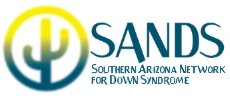What is Down syndrome?
In every cell in the human body, there is a nucleus, where genetic material is stored in genes. Genes carry the codes responsible for all of our inherited traits and are grouped along rod-like structures called chromosomes. Typically, the nucleus of each cell contains 23 pairs of chromosomes, half of which are inherited from each parent. Down syndrome occurs when an individual has a full or partial extra copy of chromosome 21.
How common is Down syndrome?
According to the Centers for Disease Control and Prevention, approximately one in every 700 babies in the United States is born with Down syndrome, making Down syndrome the most common chromosomal condition. About 6,000 babies with Down syndrome are born in the United States each year.

